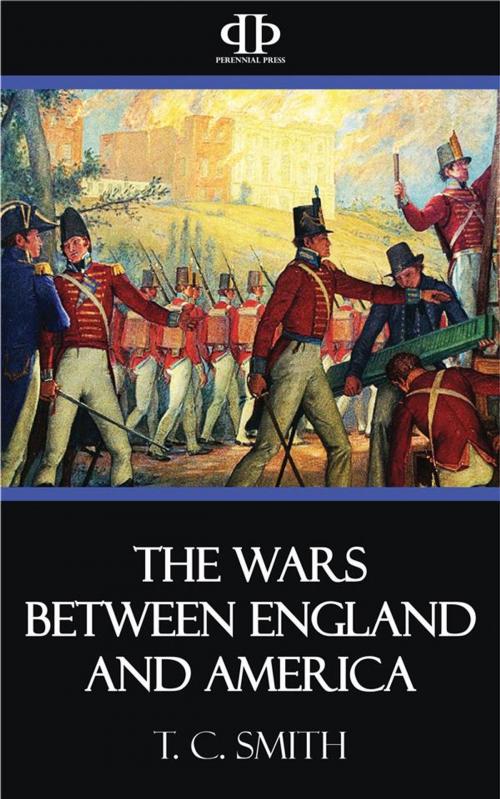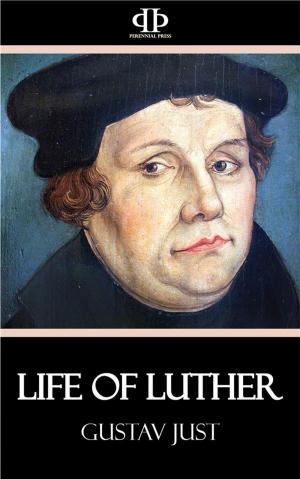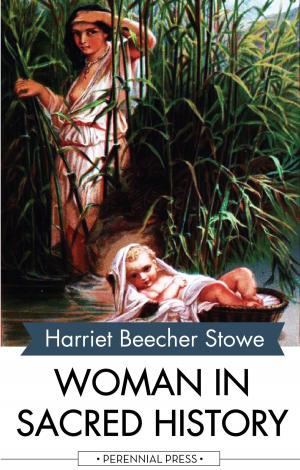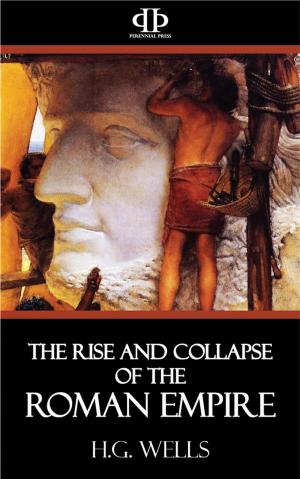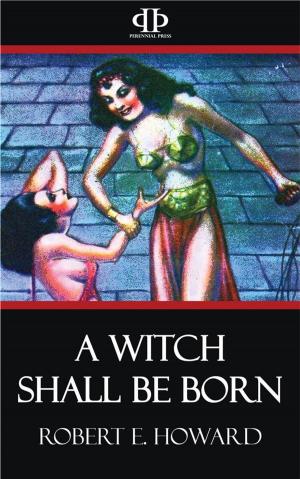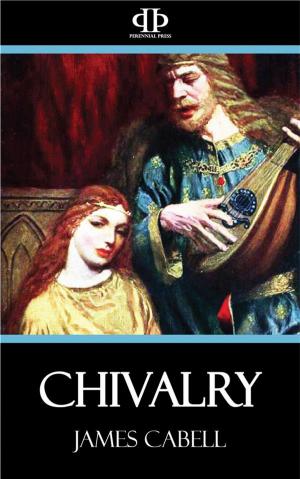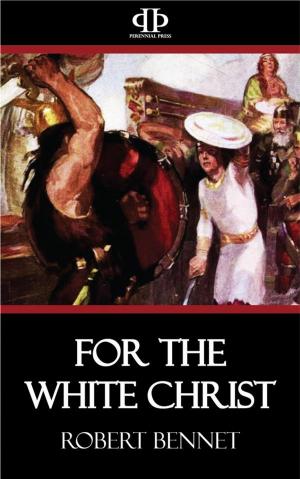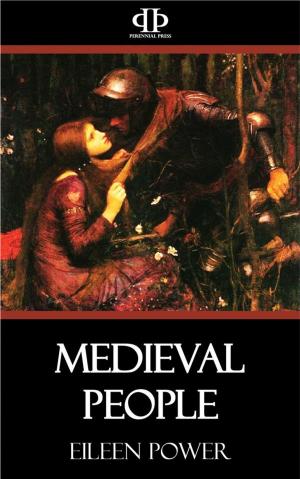The Wars Between England and America
Nonfiction, History, Modern, 18th Century, 19th Century, Americas, United States| Author: | T.C. Smith | ISBN: | 9781518328534 |
| Publisher: | Perennial Press | Publication: | December 5, 2015 |
| Imprint: | Language: | English |
| Author: | T.C. Smith |
| ISBN: | 9781518328534 |
| Publisher: | Perennial Press |
| Publication: | December 5, 2015 |
| Imprint: | |
| Language: | English |
In 1763, by the Peace of Paris, England won a position of unapproached supremacy in colonial possessions and in naval strength. The entire North American continent east of the Mississippi River was now under the British flag, and four West India sugar islands were added to those already in English hands. In India, the rivalry of the French was definitely crushed and the control of the revenues and fortunes of the native potentates was transferred to the East India Company. Guided by the genius of Pitt, British armies had beaten French in Germany and America, and British fleets had conquered French and Spanish with complete ease. The power of the Empire seemed beyond challenge. Yet within this Empire itself there lay already the seeds of a discord which was soon {10} to develop into an irrepressible contest, leading to civil war; then, for a generation, to drive the separated parts into renewed antagonism, and finally to cause a second war. Between the North American colonies and the mother country there existed such moral, political, and economic divergence that nothing but prudent and patient statesmanship on both sides of the Atlantic could prevent disaster.
The fundamental source of antagonism lay in the fact that the thirteen colonies had developed a wholly different social and political life from that of the mother country. Originally, the prevailing ideas and habits of the colonists and of the Englishmen who remained at home had been substantially the same. In England, as in America, the gentry and middle classes played a leading part during the years from 1600 to 1660. But by 1763 England, under the Hanoverian kings, had become a state where all political and social power had been gathered into the hands of a landed aristocracy which dominated the government, the Church, and the professions. In parliament, the House of Commons—once the body which reflected the conscious strength of the gentry and citizens,—had now fallen under the control of the peers, owing to the decayed condition of scores of ancient parliamentary boroughs. Nearly one-third of the seats were actually {11} or substantially owned by noblemen, and of the remainder a majority were venal, the close corporations of Mayor and Aldermen selling freely their right to return two members at each parliamentary election. In addition, the influence and prestige of the great landowners were so powerful that even in the counties, and in those boroughs where the number of electors was considerable, none but members of the ruling class sought election. So far as the members of the middle class were concerned—the merchants, master weavers, iron producers, and craftsmen,—they were strong in wealth and their wishes counted heavily with the aristocracy in all legislation of a financial or commercial nature; but of actual part in the government they had none. As for the lower classes,—the labourers, tenant farmers, and shopkeepers,—they were able as a rule to influence government only by rioting and uproar. Without the ballot, they had no other way...
In 1763, by the Peace of Paris, England won a position of unapproached supremacy in colonial possessions and in naval strength. The entire North American continent east of the Mississippi River was now under the British flag, and four West India sugar islands were added to those already in English hands. In India, the rivalry of the French was definitely crushed and the control of the revenues and fortunes of the native potentates was transferred to the East India Company. Guided by the genius of Pitt, British armies had beaten French in Germany and America, and British fleets had conquered French and Spanish with complete ease. The power of the Empire seemed beyond challenge. Yet within this Empire itself there lay already the seeds of a discord which was soon {10} to develop into an irrepressible contest, leading to civil war; then, for a generation, to drive the separated parts into renewed antagonism, and finally to cause a second war. Between the North American colonies and the mother country there existed such moral, political, and economic divergence that nothing but prudent and patient statesmanship on both sides of the Atlantic could prevent disaster.
The fundamental source of antagonism lay in the fact that the thirteen colonies had developed a wholly different social and political life from that of the mother country. Originally, the prevailing ideas and habits of the colonists and of the Englishmen who remained at home had been substantially the same. In England, as in America, the gentry and middle classes played a leading part during the years from 1600 to 1660. But by 1763 England, under the Hanoverian kings, had become a state where all political and social power had been gathered into the hands of a landed aristocracy which dominated the government, the Church, and the professions. In parliament, the House of Commons—once the body which reflected the conscious strength of the gentry and citizens,—had now fallen under the control of the peers, owing to the decayed condition of scores of ancient parliamentary boroughs. Nearly one-third of the seats were actually {11} or substantially owned by noblemen, and of the remainder a majority were venal, the close corporations of Mayor and Aldermen selling freely their right to return two members at each parliamentary election. In addition, the influence and prestige of the great landowners were so powerful that even in the counties, and in those boroughs where the number of electors was considerable, none but members of the ruling class sought election. So far as the members of the middle class were concerned—the merchants, master weavers, iron producers, and craftsmen,—they were strong in wealth and their wishes counted heavily with the aristocracy in all legislation of a financial or commercial nature; but of actual part in the government they had none. As for the lower classes,—the labourers, tenant farmers, and shopkeepers,—they were able as a rule to influence government only by rioting and uproar. Without the ballot, they had no other way...
